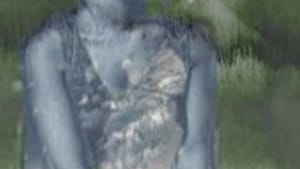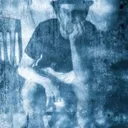Stay in the Loop
BSR publishes on a weekly schedule, with an email newsletter every Wednesday and Thursday morning. There’s no paywall, and subscribing is always free.
Film, yes; digital photography no

The joys of delayed gratification, or:
The case against digital photography
R.A. FRIEDMAN
In a recent post on Broad Street Review, Richard Chaitt waxed euphoric about digital cameras and how he learned to love them. I too, in fact, own a digital camera— an old Olympus Camedia D550, which is perfect for taking images for the web: all the stuff I buy on e-Bay, play with and then later resell. It's fast, and it gets things nicely done. For my purposes, it's the right tool for the job. And I know some photographers who make fantastic images with digital cameras.
Still, for my own creative work, I always use film.
I carried around a digital camera for my cityscape and travel shooting from 2003 until this year. As I became more serious about photography, my desire to use my digital camera declined. With digital shooting, my brain never wrapped itself around what the final result would look like (other than steely and lacking controlled depth-of-field); whereas with my film cameras, I feel I can now tune into their inherent optical characteristics. As Ansel Adams put it, I can "pre-visualize."
This is not to say that one "look" is better than the other— just my preference. That an image-capturing device can be "transparent," or that cameras capture "reality" is a myth. The tools always color the result, and our visual response is surely conditioned by our environment and experience.
The wonders of a used camera shop
Although digital camera technology is complex, it’s really still in its infancy. For my style of work, digital cameras don’t open up possibilities— they limit them. Unless you want to mortgage your house, hand-held digital instruments offer just two configurations: digital SLR and point-n-shoot, neither of which feels right to me, especially given the relatively high purchase prices.
Visit any used camera department and you’ll see that there have been dozens of variations in function, camera ergonomics and design philosophy since the birth of photography. (You may, like me, find these old instruments irresistible.) If you shoot film, many choices are still available at bargain prices. Love to compose your images on a big ground glass? Want to build your own camera? If you hope to pull this off with today's electronic cameras, you're out of luck.
But let's move on to the heart of the matter: the philosophical realm.
Slowing down and taking stock
Digital by its nature doesn’t impose creative discipline; film does. When I shot digitally, the virtually automatic, cost-free image-making encouraged me to click off an excess of throw-away files in the hope "that something would be good." I would then edit out the bad images, save the good ones and call it a day. The whole process demanded a minimum of my attention and input. The photos weren’t bad, but my photographic vision didn’t evolve very much.
In the other hand, film— where each shot costs about a buck and demands much more care and concentration— has made me slow down and take stock; to not only think about the technical end but also about the images themselves, how they relate to series and my overall body of work. My percentage of strong shots has risen markedly since I switched back to film. Often I examine potential subjects and then deduce that they’re not going to work, and so I move on. This test not only saves time, it builds confidence and vision.
The joys of delayed gratification
I actually enjoy the delayed gratification film imposes. When the negatives return from the film lab, the time lag allows me to contemplate the photos afresh. As I scan in each image, little surprise packages inhabit my screen. Then I examine each image closely to see if my visual intent was realized. Even while retouching dirt and scratches in Photoshop, I find I'm examining and discovering new things.
Will I return to digital photography some day? It's a waiting game. Canon has already introduced a pricey point-n-shoot (the G7) that offers some of the look and at least partial feel of a traditional rangefinder camera. Now, if they could just make a digital film pack for my 1948 Speed Graphic that imitates the look of expired Polaroid!
Meanwhile, I'll continue shooting film and carrying an ancient folding camera.
RA Friedman is a photographer who lives and works in Center City Philadelphia. He specializes in fine art images that engage in dialogue with vintage photography.
The case against digital photography
R.A. FRIEDMAN
In a recent post on Broad Street Review, Richard Chaitt waxed euphoric about digital cameras and how he learned to love them. I too, in fact, own a digital camera— an old Olympus Camedia D550, which is perfect for taking images for the web: all the stuff I buy on e-Bay, play with and then later resell. It's fast, and it gets things nicely done. For my purposes, it's the right tool for the job. And I know some photographers who make fantastic images with digital cameras.
Still, for my own creative work, I always use film.
I carried around a digital camera for my cityscape and travel shooting from 2003 until this year. As I became more serious about photography, my desire to use my digital camera declined. With digital shooting, my brain never wrapped itself around what the final result would look like (other than steely and lacking controlled depth-of-field); whereas with my film cameras, I feel I can now tune into their inherent optical characteristics. As Ansel Adams put it, I can "pre-visualize."
This is not to say that one "look" is better than the other— just my preference. That an image-capturing device can be "transparent," or that cameras capture "reality" is a myth. The tools always color the result, and our visual response is surely conditioned by our environment and experience.
The wonders of a used camera shop
Although digital camera technology is complex, it’s really still in its infancy. For my style of work, digital cameras don’t open up possibilities— they limit them. Unless you want to mortgage your house, hand-held digital instruments offer just two configurations: digital SLR and point-n-shoot, neither of which feels right to me, especially given the relatively high purchase prices.
Visit any used camera department and you’ll see that there have been dozens of variations in function, camera ergonomics and design philosophy since the birth of photography. (You may, like me, find these old instruments irresistible.) If you shoot film, many choices are still available at bargain prices. Love to compose your images on a big ground glass? Want to build your own camera? If you hope to pull this off with today's electronic cameras, you're out of luck.
But let's move on to the heart of the matter: the philosophical realm.
Slowing down and taking stock
Digital by its nature doesn’t impose creative discipline; film does. When I shot digitally, the virtually automatic, cost-free image-making encouraged me to click off an excess of throw-away files in the hope "that something would be good." I would then edit out the bad images, save the good ones and call it a day. The whole process demanded a minimum of my attention and input. The photos weren’t bad, but my photographic vision didn’t evolve very much.
In the other hand, film— where each shot costs about a buck and demands much more care and concentration— has made me slow down and take stock; to not only think about the technical end but also about the images themselves, how they relate to series and my overall body of work. My percentage of strong shots has risen markedly since I switched back to film. Often I examine potential subjects and then deduce that they’re not going to work, and so I move on. This test not only saves time, it builds confidence and vision.
The joys of delayed gratification
I actually enjoy the delayed gratification film imposes. When the negatives return from the film lab, the time lag allows me to contemplate the photos afresh. As I scan in each image, little surprise packages inhabit my screen. Then I examine each image closely to see if my visual intent was realized. Even while retouching dirt and scratches in Photoshop, I find I'm examining and discovering new things.
Will I return to digital photography some day? It's a waiting game. Canon has already introduced a pricey point-n-shoot (the G7) that offers some of the look and at least partial feel of a traditional rangefinder camera. Now, if they could just make a digital film pack for my 1948 Speed Graphic that imitates the look of expired Polaroid!
Meanwhile, I'll continue shooting film and carrying an ancient folding camera.
RA Friedman is a photographer who lives and works in Center City Philadelphia. He specializes in fine art images that engage in dialogue with vintage photography.
Sign up for our newsletter
All of the week's new articles, all in one place. Sign up for the free weekly BSR newsletters, and don't miss a conversation.

 RA Friedman
RA Friedman